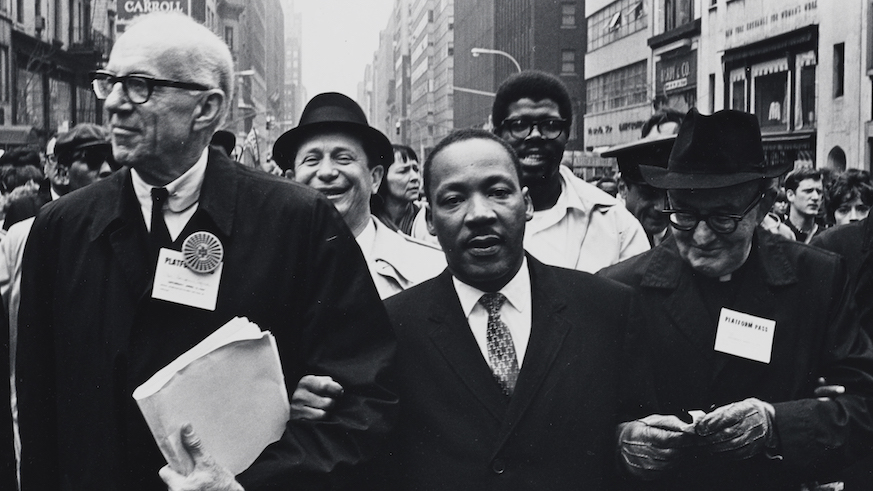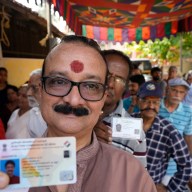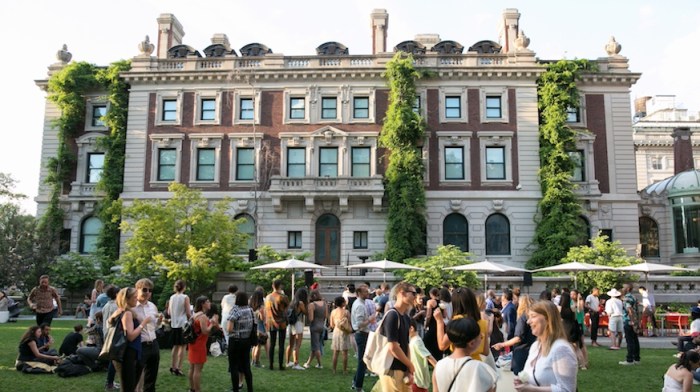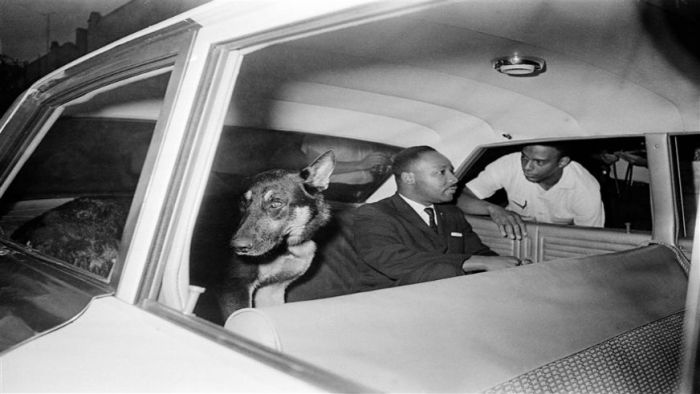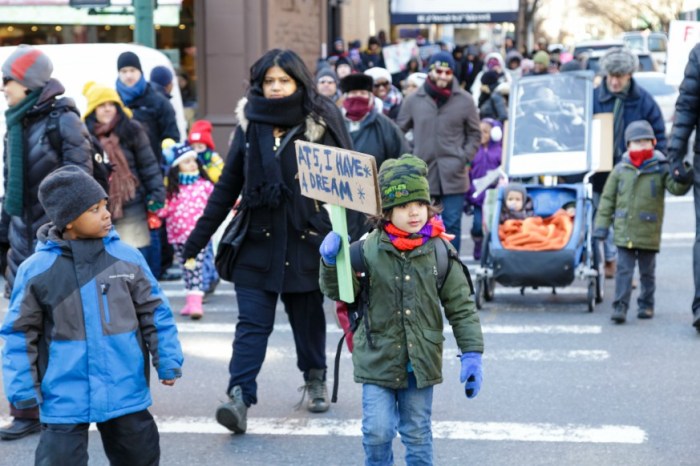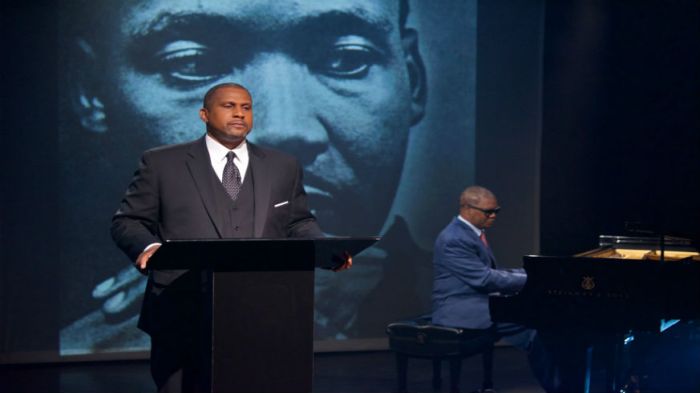As the defining icon of the Civil Rights Movement, Martin Luther King Jr.’s work beyond the scope of voting rights and racial equality has been overshadowed.
But his lifelong fight for equality took many forms, as King’s advocacy work during his time in New York City shows.
“Looking through the New York lens shines a light on the undertones of his work,” says Sarah Seidman, curator of the new photography exhibit King in New York, the first-ever comprehensive look at his work in the five boroughs from the 1950s through his death in 1968. “It’s not a coincidence that he’s emphasizing labor issues in a lot of his speeches here.”
Opening Jan. 13 at the Museum of the City of New York, King in New York is a deep dive into the broader scope of his advocacy work in honor of the 50th anniversary of his assassination in Memphis, gunned down while supporting sanitation workers during a strike.
Besiders workers’ rights, his speeches, sermons and activism in New York also extended to economic, social and anti-war causes in front of audiences ranging from religious congregations to unions and political groups.
“King spoke about global politics and international issues in so many of his speeches that he gave here,” says Seidman. “It really hits home looking at his New York body of work that he was preoccupied not just with local and national equality, but also how racism was connected to imperialism or war and also economic injustice and questions of poverty and critiques of capitalism.”
Why New York?
As the hub of print and television media, New York City provided a national pulpit for King. As the headquarters of the United Nations and the NAACP, King was able to meet with influential leaders both local and international. His own Southern Christian Leadership Conference had a Harlem office.
While New York didn’t have the same barriers to voting as other places in the U.S., King advocated passionately for issues affecting the city’s black community.
“Certainly racial discrimination in housing, employment and schools were very much issues that New Yorkers were mobilizing around, and certainly King did weigh in on that.”
His influence on the city was so profound that in 1964, Mayor Robert F. Wagner awarded King the Medallion of Honor and proclaimed him an honorary New Yorker.
Taking a stand on the Vietnam War
On April 4, 1967, King took the pulpit at Manhattan’s Riverside Church to deliver his Beyond Vietnam sermon, which would become one of the best-known critiques of the Vietnam War. In part, he blamed the drawn-out conflict there for making life worse in the African-American community back home.
“He talks about black men who fight and die in Vietnam in disproportionate numbers, that’s the most concrete link,” says Seidman.
His argument gets broader and broader, from calling out then-President Lyndon Johnson for taking away resources from the War on Poverty to the hypocrisy of preaching non-violence to young men when their country is setting an entirely different example. “Really by the end,” Seidman sums up, “he calls for a revolution of values in the United States.”
“The wildfires in California over the past few months have once more highlighted the issue of prison labor, and the injustices faced by people locked up.” Lorraine, an active @ellabakercenter member, says the U.S. justice system needs a fundamental change.https://t.co/JnWV6oTWx0
— Ella Baker Center (@ellabakercenter) January 10, 2018
Meet the New Yorkers who supported King’s work
To “get at the New York scene a little bit more,” Seidman included photos of the New Yorkers who worked most closely with King.
Bayard Rustin, a longtime activist, organized the first freedom rides in 1947 to integrate interstate bus travel. Perhaps the Civil Rights Movement’s most prominent female voice, Ella Baker, spent many years in the city working for the NAACP.
And while the New York Times denounced King for his opposition to the Vietnam War, a journal called Freedom Ways edited by Esther Cooper-Jackson featured him on its cover and hosted receptions where figureheads like W.E.B. DuBois spoke.
“They all helped with the day-to-day necessary brass tacks to make the Civil Rights Movement function,” says Seidman.
King in New York runs Jan. 13-June 1, 2018 at the Museum of the City of New York, 1220 Fifth Ave. The exhibit is free with admission ($18 for adults, free for ages 19 and under).

